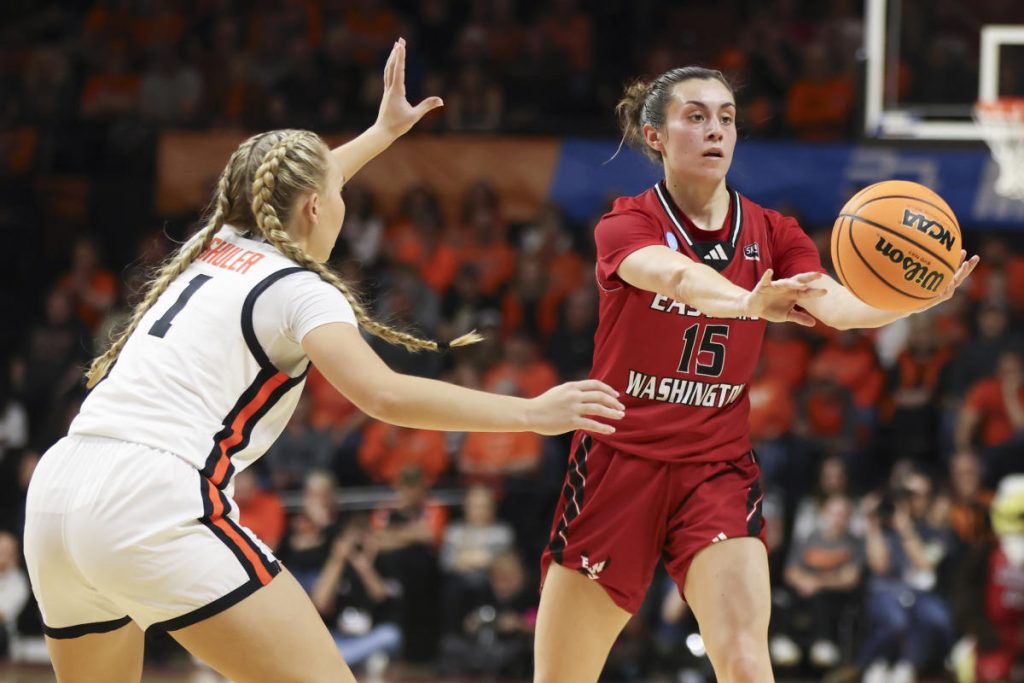Eastern Washington recently secured its second trip to the NCAA women’s basketball tournament by claiming a Big Sky Conference Tournament title. However, the team faced a logistical challenge when they had to stay in a hotel 40 miles away from Oregon State’s arena due to limited availability near the venue. This resulted in a gameday trip that took an hour, dampening some of the excitement surrounding their tournament appearance. The Eagles’ experience highlights the various variables and challenges that come with the NCAA women’s basketball tournament, which relies on host schools for opening-round games that are determined just days ahead of time.
The NCAA is faced with the task of evaluating the structure of the tournament as it continues to grow in popularity. Lynn Holzman, NCAA vice president for women’s basketball, mentioned that the selection committee plans to review the championship format after the 2025 tournament. There is a push for this review to take place sooner to address issues such as the advancement from the First Four through the early round hosts and the two-regional format introduced last season. Balancing host sites poses a challenge as home-standing teams benefit from stronger attendance compared to playing at neutral sites initially. However, inconsistencies in areas such as hotel accommodations, nutrition, and competition facilities need to be addressed to ensure a more consistent experience for all teams.
Securing a host site has become a coveted reward for top-performing teams, as it can provide a competitive advantage during tournament games. Schools like North Carolina State, based in Raleigh, have the infrastructure and resources to host teams effectively. However, smaller towns like Corvallis, Oregon, where Eastern Washington, Nebraska, and Texas A&M played their opening-round games, face challenges due to limited hotel options and amenities. Despite efforts by host schools to provide hospitality, logistical issues such as transportation and proximity to competition venues can impact the overall experience for teams.
Efforts to improve hosting requirements and offerings are being made to address inconsistencies in tournament logistics. Kristen Brown, from Texas A&M, stressed the importance of minimum expectations for host sites, including proper nutrition, hotel accommodations within a reasonable distance from venues, and full-service amenities. If these expectations cannot be met in the current model, alternatives such as competing at neutral sites or returning to predetermined campus sites should be explored to ensure that student-athletes receive the experience they deserve. As the NCAA women’s tournament continues to gain popularity, it is crucial to prioritize the overall experience for all participating teams.
Logistical challenges like limited hotel availability and transportation issues can impact the experience of teams participating in the NCAA women’s basketball tournament. While certain locations like Raleigh, North Carolina, have the infrastructure to host teams effectively, smaller towns may struggle to meet the requirements for hosting tournament games. The NCAA is evaluating the tournament format to address these challenges and ensure a more consistent experience for all teams. The push for improved hosting requirements and offerings reflects a commitment to providing student-athletes with a positive and fair tournament experience.













